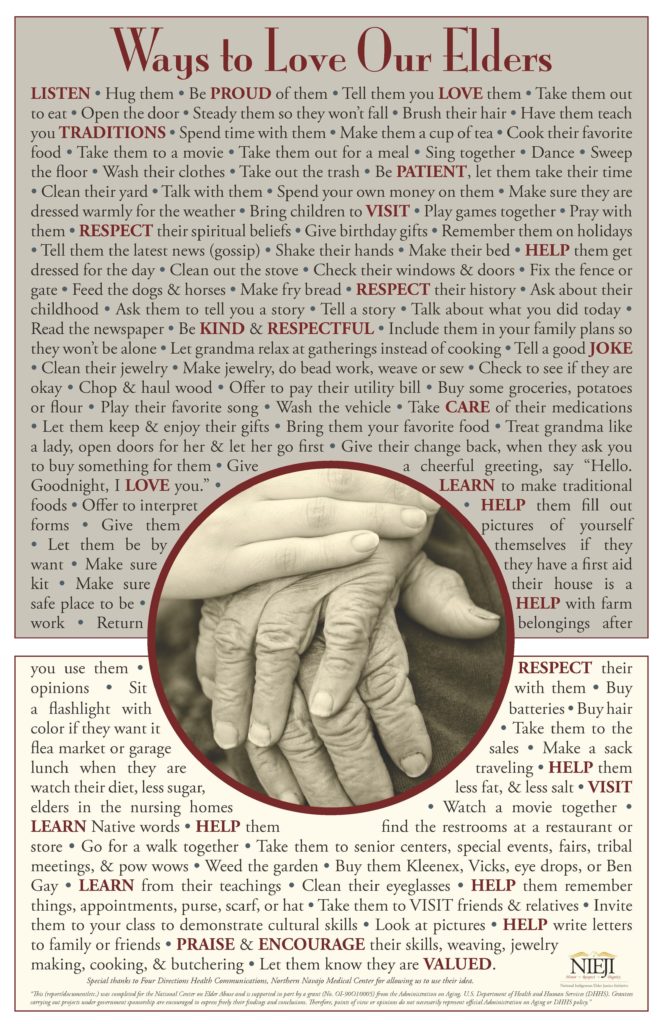Valentine’s Day is often known as a consumer holiday focused on couples. However, at the National Indian Council on Aging (NICOA), we want to reinvent the holiday and use it as a way to celebrate the love everyone has for their Elders.
“Native American values and cultures believe that everything and everyone is connected. What we do to others and to the planet we do to ourselves. Practicing love, honor, gratitude and respect daily will unify us with the planet, its creatures and the Great Spirit.” Today, we encourage everyone to practice love, honor, and gratitude for our Elders, and continue to practice it daily.
How Can You Show Love, Honor, and Gratitude for Your Elders
A great article about how to respect and honor your Elders, and show them love, is by Vincent Schilling on Indian Country Today. The article provides various ways to respect your Elders, which include:
- Listen More
- Be Polite
- Ask for Advice
- Let Them Eat First
- Ask About Traditions
- Ask About Their Lives
- Give Them a Call
- Tell Them You Respect and Appreciate Them
Another great resource for ideas on how to practice love, honor, and gratitude for our Elders can be found on the poster from National Indigenous Elder Justice Initiative called “Ways to Love Our Elders.” You can click that link to access a downloadable PDF of this poster.
Finally, patience is an often forgotten but important way to show that you love, honor, and respect your Elders. As NICOA Executive Director Randella Bluehouse shares, “Patience is a challenge to everyday living, but we have to remember to be patient with our aging parents. My mother knows I love her, but I need to actually show her by listening to her, spending time with her, and most importantly being patient. After all, she has always been patient with me.”
If You Weren’t Already Convinced, Other Reasons to Start Loving Your Elders
As the National Institute on Aging states, “Several research studies have shown a strong correlation between social interaction and health and well-being among older adults and have suggested that social isolation may have significant adverse effects for older adults.” Study results indicated that: a strong emotional bond with family often leads to healthier habits, social isolation is a major risk factor for mobility and mortality in older adults, loneliness can have a physical and emotional impact on Elders, and loneliness is a risk factor for symptoms of depression.
By honoring and showing love for your Elders, you can help them overcome physical and mental issues that loneliness and a lack of social interaction can cause. Furthermore, you can gain a wealth of knowledge, history, and tradition by spending time with them and learning about their lives. Elders “are held in high regard for their wisdom—they are valued for being the bridge between the past and the present.”
The opinions expressed in this article are those of the author and do not necessarily reflect those of the Diverse Elders Coalition.


